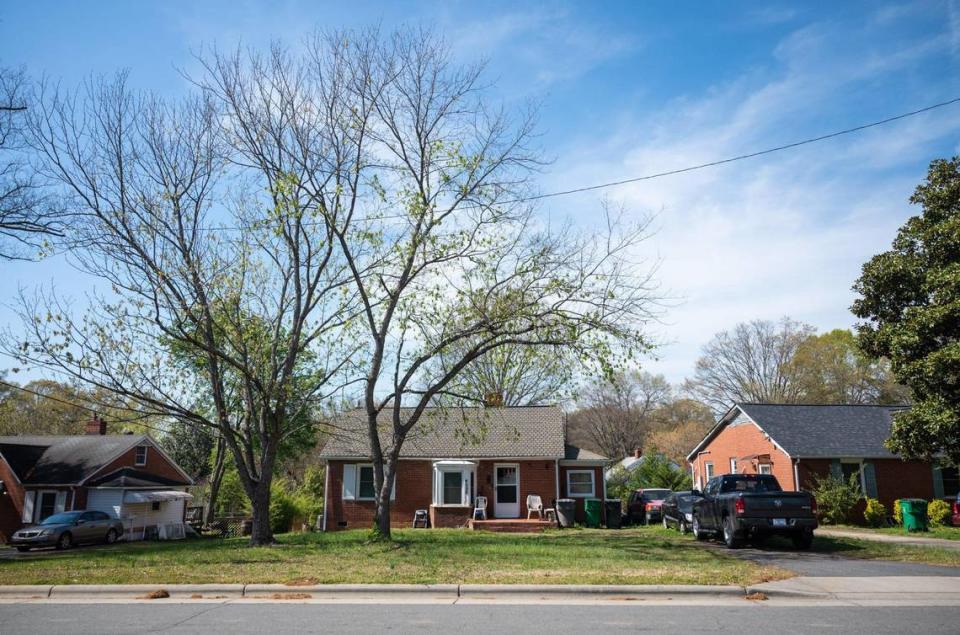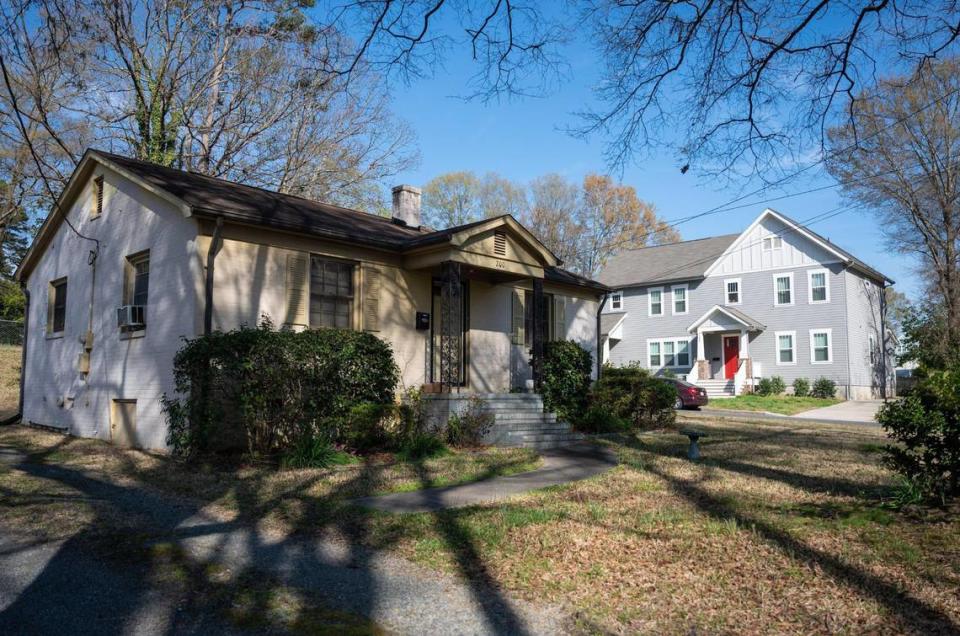Home values on this Charlotte road increased 264%. It could drive residents out
The value of Abraham Roosevelt’s home off South Tryon Street never went far above $100,000 in the five decades he’s owned it.
But in 2023, the tax value of his Sarah Drive home skyrocketed 220%.
He’s not looking forward to his tax bill this summer, which will be based on an assessed value of nearly $316,000, new county data show.
“I knew it would go up, but not by that much,” Roosevelt said.
Roosevelt’s home wasn’t the steepest increase on his street. The average home on Sarah Drive increased 264%.
Data analyzed by The Charlotte Observer show lower-value homes saw the steepest increases in taxable value since Mecklenburg County’s last tax revaluation in 2019 — and that’s expected to be translated onto tax bills. The county sent out revaluation notices this month to hundreds of thousands of Mecklenburg property owners for the 2023 revaluation. Nearly all of them saw an increase of their assessed value.
Jamar Daniels, Roosevelt’s neighbor on adjacent West Cama Street, isn’t surprised.
“Ever since those big things showed up, those condos, things are getting more expensive,” Daniels said, gesturing to the residential development surrounding his neighborhood.
Multi-story apartment buildings peek above the trees in the yards of the single family homes that line West Cama Street.
The growth driving more people to south Charlotte could indirectly push Daniels out of the home he and his mother inherited from his grandparents, he said. His street’s home values increased 220% on average, data show.
Larry Shaheen Jr., a Charlotte-based property tax attorney, has received hundreds of calls in just one week since the county sent out revaluation notices.
Their main concern?
“Oh my God, my value’s increased,” Shaheen said.

This year, Shaheen’s had to turn away a lot of business. But he said the revaluation was done fairly, and many of the steep increases people see are representative of an uncertain housing market and a volatile economy. The exact tax bills people pay will be determined as counties and municipalities set rates for their 2023-2024 budgets. Those rates will be set before the new fiscal year starts on July 1.
But if something does look wrong with your assessed tax value, Mecklenburg County has an appeal process.
Property owners can file an appeal to potentially reduce or increase their value. The form to file an appeal can be found at mecknc.gov/AssessorsOffice/. The deadline to file an appeal is June 9.
What about people who rent in Charlotte?
Though Charlotte renters didn’t get a property tax revaluation in the mail, their landlords did.
Shaheen expects new tax burdens from increased commercial property values could be passed to renters in the form of higher rents in 12 to 18 months. Commercial properties saw a 41% average increase countywide.
This is already a problem for renters suffering from corporate landlords already hiking up prices, said Robert Dawkins, political director at local advocacy group Action NC.
“Over the past decade, Charlotte has become unaffordable for anyone that’s not in banking or an executive,” Dawkins said.
Corporate landlords often target poor, minority neighborhoods, buying up homes for cheap and fixing them up to rent out, he said. Corporate landlords are typically large investment firms that buy single family homes and convert them to rentals.
One of those neighborhoods is Grier Heights, where nearly a quarter of residential properties have an owner’s name listed with “LLC” or “Inc.” in it, suggesting renter occupancy. Several Grier Heights residents who spoke to The Charlotte Observer said they were renting but weren’t familiar with revaluation or its process.
The historically Black Charlotte neighborhood just south of uptown and east of Randolph Road saw big property value increases this year, too, which Dawkins fears for residents already dealing with rising rents and inflation prior to the revaluation.
Residential properties in Grier Heights increased 155%, a Charlotte Observer analysis found. Eighty-six percent of Grier Heights’ 471 residential lots doubled in value.
Some properties along Marvin Road, which cuts vertically through the heart of the neighborhood, increased more than 300%.

“Anybody who’s close to the city, specifically African American neighborhoods, who may have had problems with quality of life over the years, those are ground zero over the past few years for people going into neighborhoods, buying the houses up for cheap and passing on rent increases,” Dawkins said.
Top five Charlotte areas with the highest assessed value changes
▪ Between North Graham and North Tryon streets in the Hidden Valley and Sugar Creek neighborhoods: 160.9%
▪ West of South Tryon Street near Tyvola Road and Billy Graham Library: 160.6%
▪ West of South Tryon Streeet near Clanton Road in lower South End: 159.7%
▪ East of Randolph Road near Billingsley Road in the Grier Heights and Eastover neighborhoods: 155.2%
▪ Southwest of uptown near the airport: 154.3%

